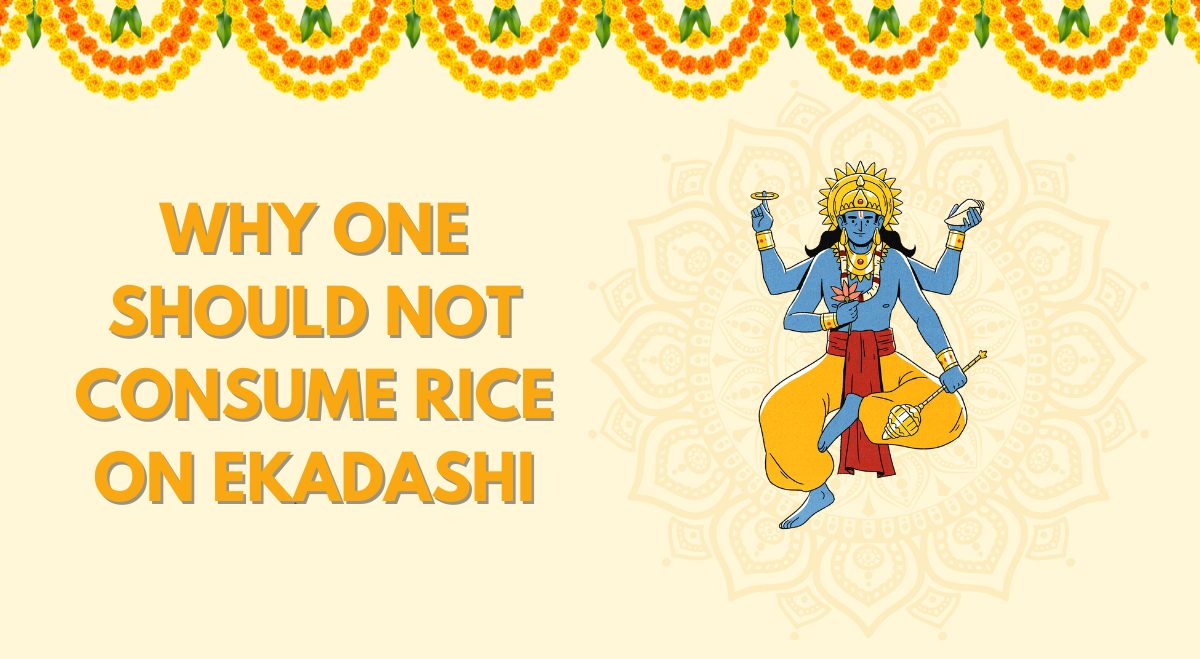Ekadashi, the eleventh day of each lunar fortnight in the Hindu calendar, is a day of spiritual significance and fasting. One of the most notable aspects of this observance is the abstinence from rice. But why is rice not eaten on Ekadashi? This article delves into the cultural, spiritual, and practical reasons behind this age-old tradition, offering insights into its deeper meaning and significance.
What is the Spiritual Reason for Avoiding Rice on Ekadashi?
The spiritual reason for avoiding rice on Ekadashi is deeply rooted in Hindu mythology and philosophy. According to ancient texts, rice is considered a living being on Ekadashi days. This belief stems from the story of Maharishi Medha, who sacrificed his body to appease Mother Shakti. Legend has it that his body parts were absorbed into the earth and later manifested as rice and barley.
Consuming rice on Ekadashi is therefore seen as equivalent to consuming the flesh of Maharishi Medha, which is considered spiritually impure. By abstaining from rice, devotees show respect to the sacrifice of the sage and maintain the purity of their fast.
Moreover, rice is associated with Lord Vishnu, the deity to whom Ekadashi is dedicated. It’s believed that refraining from rice pleases Lord Vishnu and enhances the spiritual benefits of the fast.
Cultural and Historical Context of the Ekadashi Rice Restriction
The practice of avoiding rice on Ekadashi has deep cultural roots across various regions of India. This tradition has been passed down through generations, reinforcing its importance in Hindu spiritual practices.
Historically, the Ekadashi rice restriction was also practical. In ancient times, when food preservation was challenging, avoiding rice during certain periods helped prevent the consumption of spoiled grains, especially during monsoon seasons when rice was more prone to contamination.
The cultural significance of this practice extends beyond individual observance. In many communities, collective adherence to Ekadashi fasting, including the avoidance of rice, strengthens social bonds and reinforces shared values.
Health and Practical Considerations
While the primary reasons for avoiding rice on Ekadashi are spiritual, there are also health and practical considerations that support this practice:
- Digestive Rest: Fasting from rice gives the digestive system a break, potentially aiding in detoxification.
- Nutritional Variety: Abstaining from rice encourages the consumption of alternative foods, potentially leading to a more diverse nutrient intake.
- Mindful Eating: The restriction promotes mindfulness about food choices, aligning with the spiritual focus of the day.
- Seasonal Wisdom: Traditional practices often align with seasonal changes, and avoiding rice during certain times may have had practical benefits in terms of food safety and health.
What Are the Alternatives to Rice on Ekadashi?
For those observing Ekadashi, there are numerous alternatives to rice that are both spiritually acceptable and nutritionally beneficial:
- Fruits and Vegetables: Fresh produce is highly recommended and forms the basis of many Ekadashi meals.
- Nuts and Seeds: These provide protein and healthy fats, essential for those fasting.
- Dairy Products: Milk, yogurt, and cheese are often included in Ekadashi diets.
- Sabudana (Sago): A popular substitute for rice, often used to make khichdi or vadas.
- Buckwheat (Kuttu): Used to make rotis or pancakes.
- Singhara (Water Chestnut) Flour: Another common alternative for making bread or pancakes.
These alternatives not only comply with fasting food rules but also offer a range of nutrients, ensuring that devotees can maintain their health while observing the fast.
The Psychological and Emotional Impact of Fasting from Rice
The practice of avoiding rice on Ekadashi goes beyond physical abstinence; it has significant psychological and emotional impacts:
- Self-Discipline: Refraining from a staple food like rice cultivates self-control and willpower.
- Spiritual Focus: By eliminating a common food, individuals are reminded of the day’s spiritual significance, helping to maintain focus on prayer and meditation.
- Community Connection: Shared fasting practices create a sense of unity and shared purpose among devotees.
- Mindfulness: The act of consciously avoiding rice promotes mindfulness in eating habits and daily activities.
- Gratitude: Abstaining from a staple food can foster appreciation for abundance in daily life.
Conclusion: The Enduring Significance of Avoiding Rice on Ekadashi
The practice of not eating rice on Ekadashi is a multifaceted tradition that blends spiritual beliefs, cultural heritage, and practical wisdom. While rooted in ancient Hindu scriptures and legends, this practice continues to hold relevance in modern times, offering benefits that extend beyond religious observance.
Understanding the significance of avoiding rice on Ekadashi can deepen one’s spiritual practice and connection to Hindu traditions. It serves as a reminder of the interconnectedness of body, mind, and spirit in Hindu philosophy.
Whether you observe Ekadashi fasting regularly or are simply curious about Hindu traditions, the practice of avoiding rice on this day offers insights into the rich tapestry of Indian spiritual and cultural practices.
Have you observed Ekadashi fasting? What alternatives to rice do you prefer on this day? Share your experiences and thoughts in the comments below, and let’s explore the diverse ways in which this ancient practice is observed in modern times.

